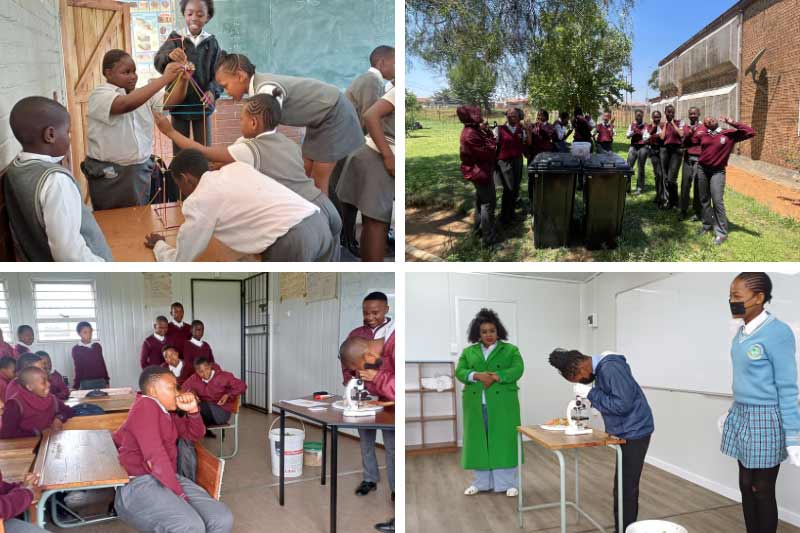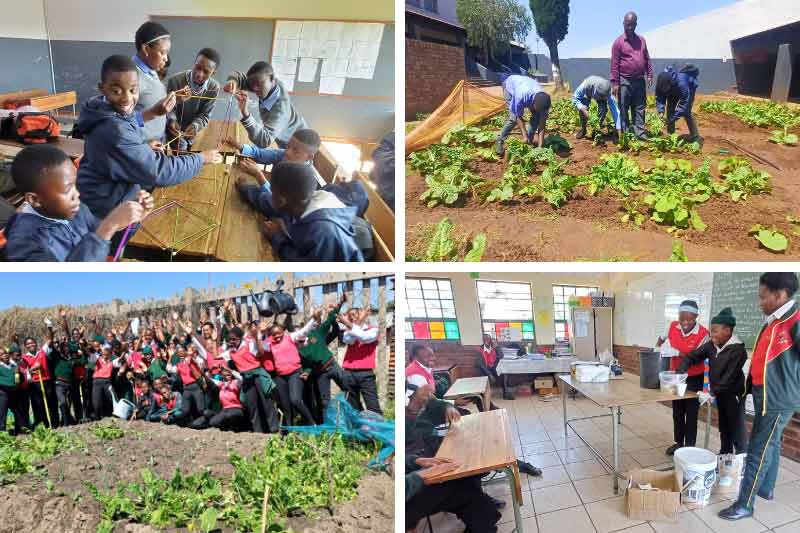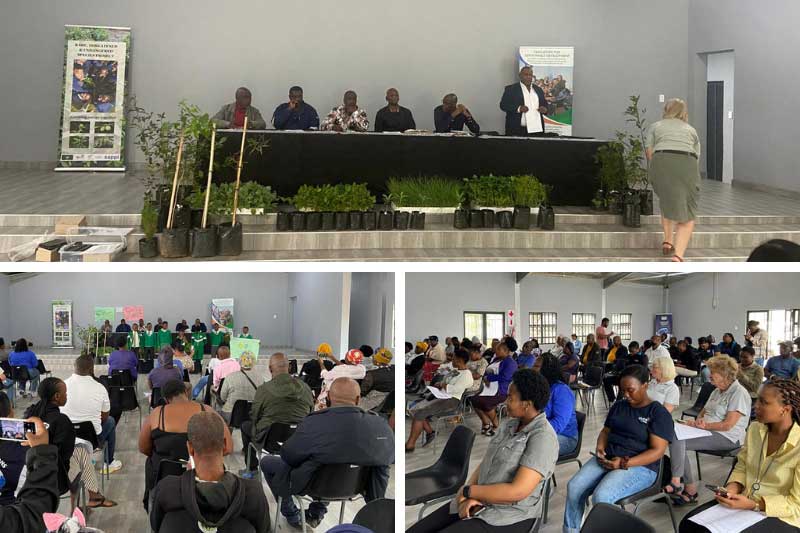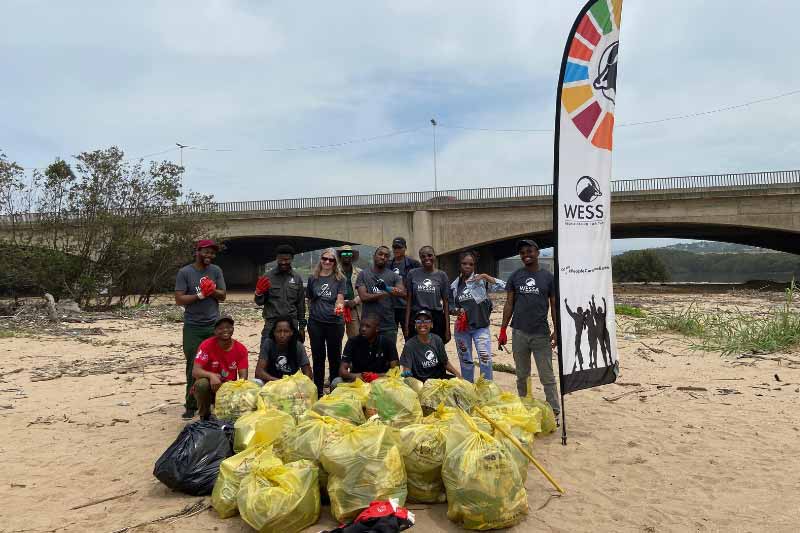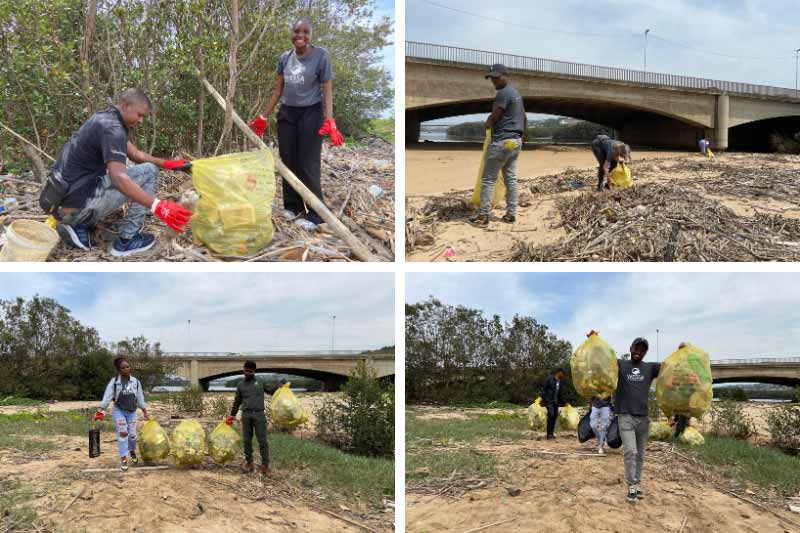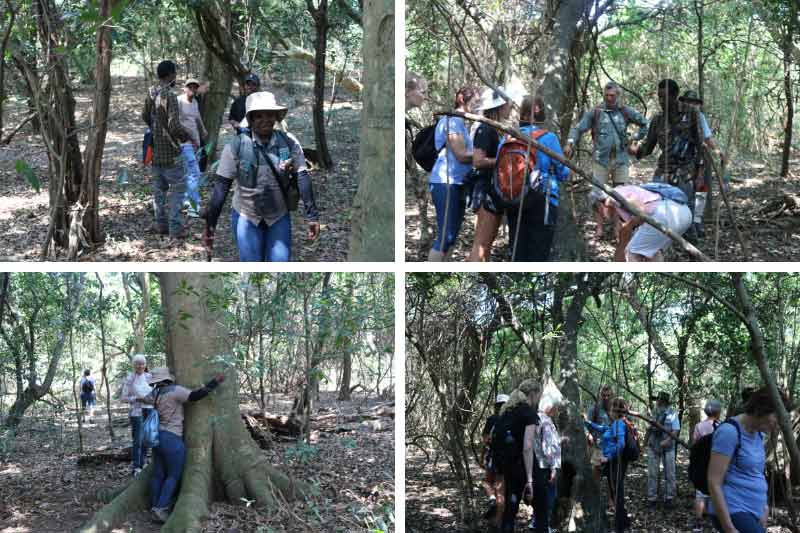![[ADvTECH Schools] Hand in Hand for Better Foods and a Better Future](https://www.wessa.org.za/wp-content/uploads/2025/10/ADvTECHheader.jpg)
[ADvTECH Schools] Hand in Hand for Better Foods and a Better Future
Pictured above: Learning about Healthy Foods for World Food Day at Pecanwood College.
For World Food Day 2025 on 16 October 2025, learners from Pecanwood College and Crawford International Bryanston rolled up their sleeves to celebrate this global event through meaningful, hands-on learning experiences.
At Pecanwood College, classes explored where our food comes from, why it’s so precious, and how healthy choices benefit both people and the planet. The Grade 0 learners proudly created a colourful awareness poster, while the entire school joined forces in a tinned food drive to support families in need — spreading kindness and community spirit beyond the classroom.
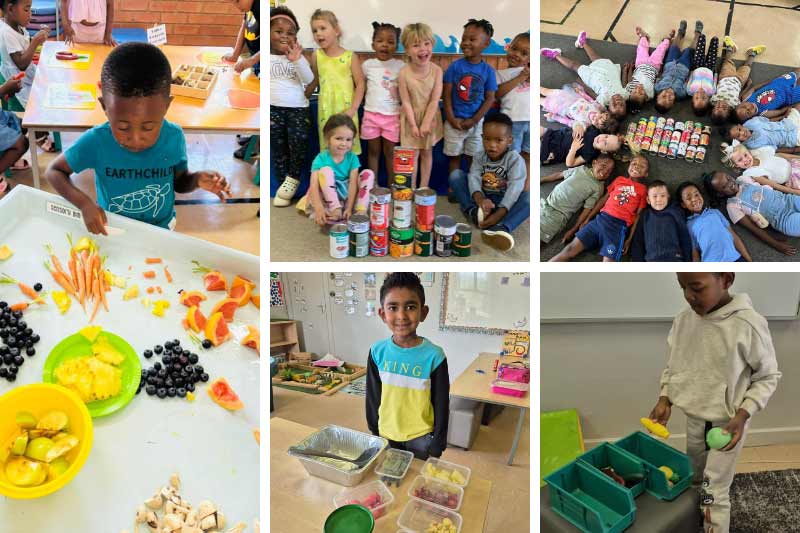
Pictured above: (left) Exploring Healthy Foods at Pecanwood College; (top) World Food Day Charity Drive at Pecanwood College to give to those in need in the community; (bottom right to left) Crawford International Bryanston – learner pretending to be a farmer for World Food Day and Farm-to-Table provocation.
Meanwhile, at Crawford International Bryanston, the Grade 00 learners brought the global theme “Hand in Hand for Better Foods and a Better Future” to life through a joyful Farm-to-Table Provocation. Their classroom transformed into a bustling market, filled with baskets of real and pretend fruits, vegetables, and grains. Learners explored textures, colours, and scents, role-playing as farmers, cooks, and shoppers to discover the journey of food from farm to table.
Both schools beautifully combined creativity, teamwork, and global awareness, helping learners appreciate the effort behind every meal and understand the importance of making mindful, healthy, and sustainable food choices, one delicious lesson at a time.
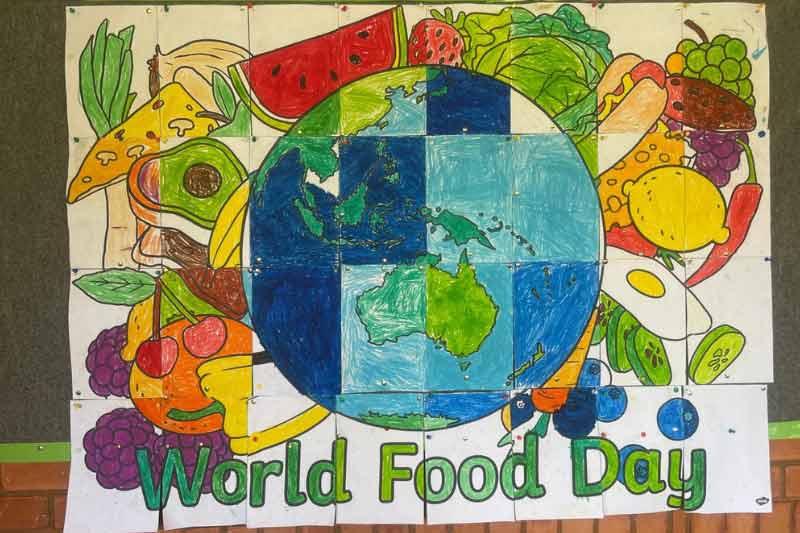
Pictured above: World Food Day Poster created by learners at Pecanwood College.

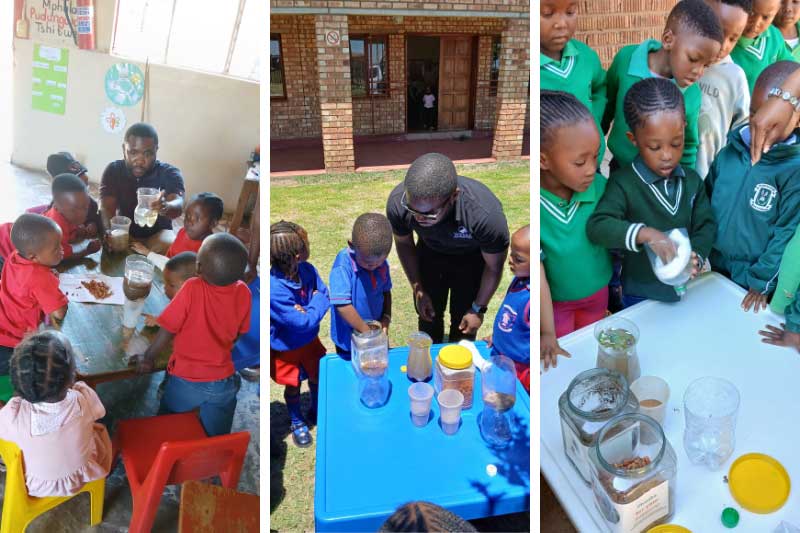
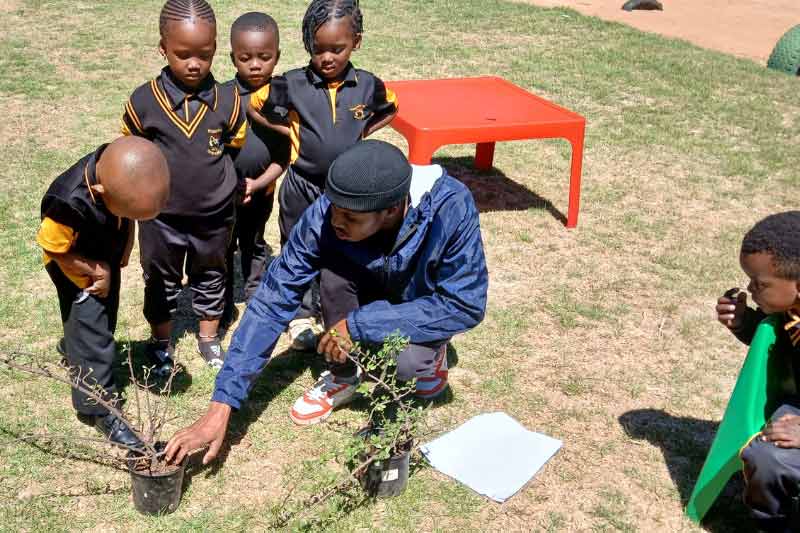
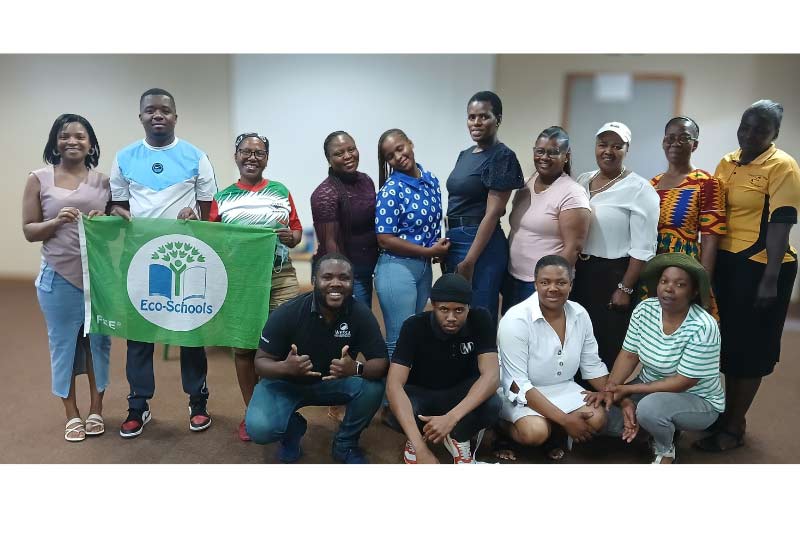 Pictured above: N3TC Project school Eco-Committee coordinators attendees.
Pictured above: N3TC Project school Eco-Committee coordinators attendees. 